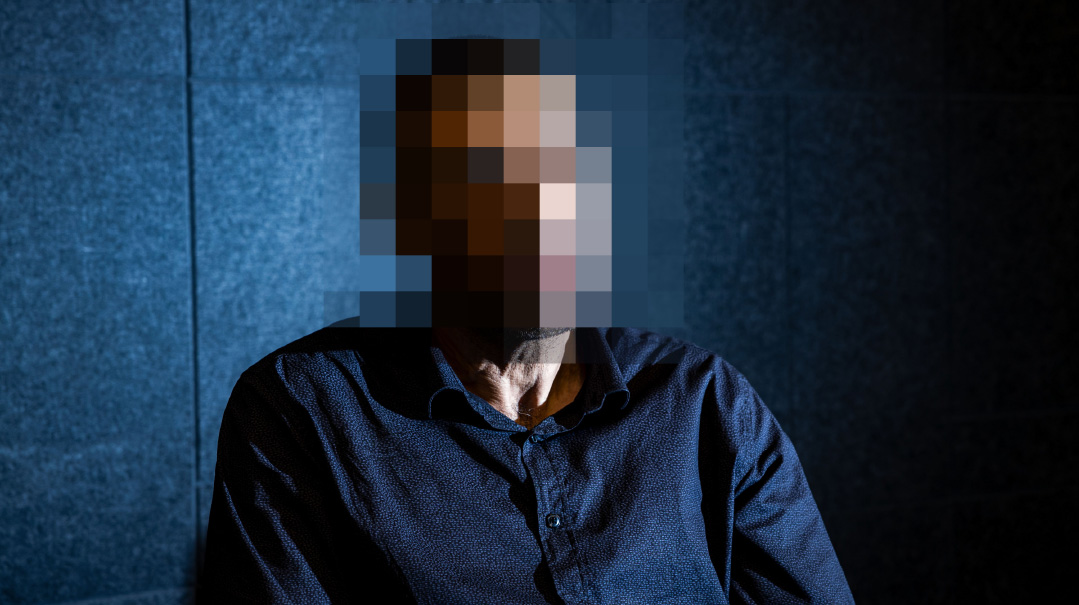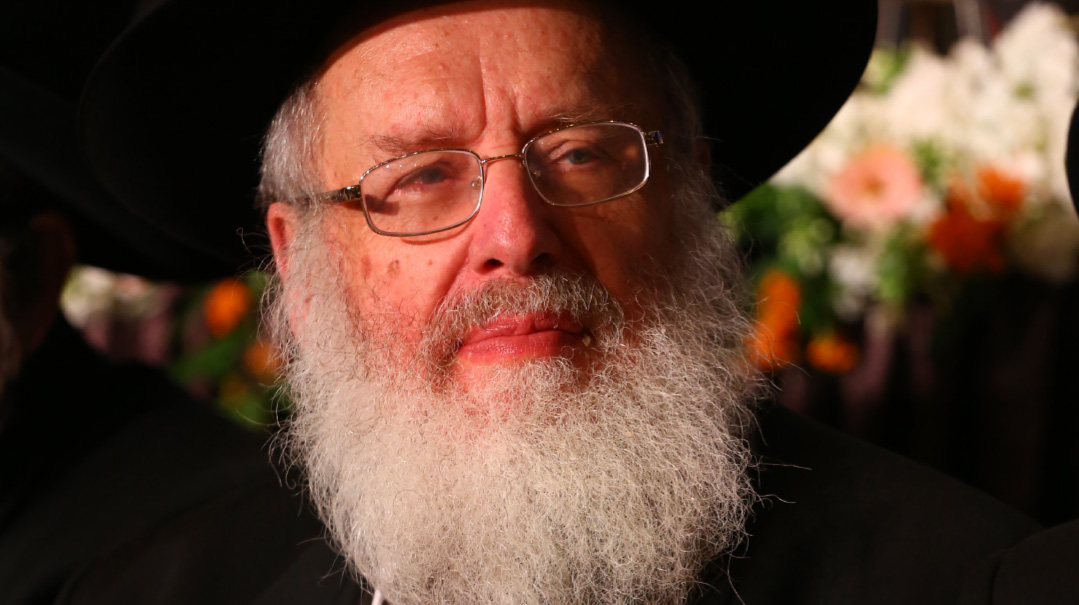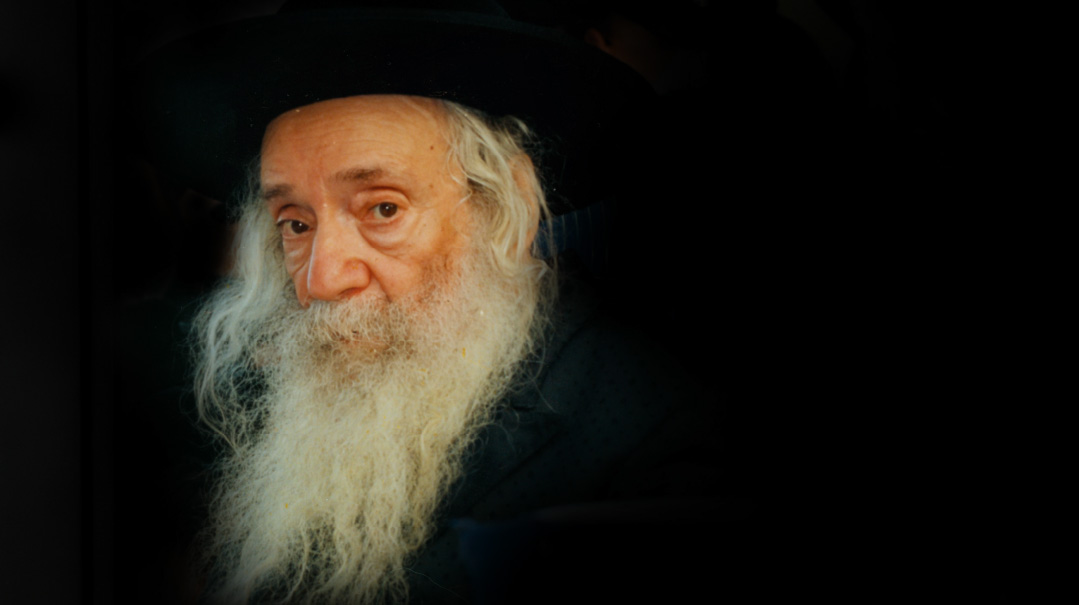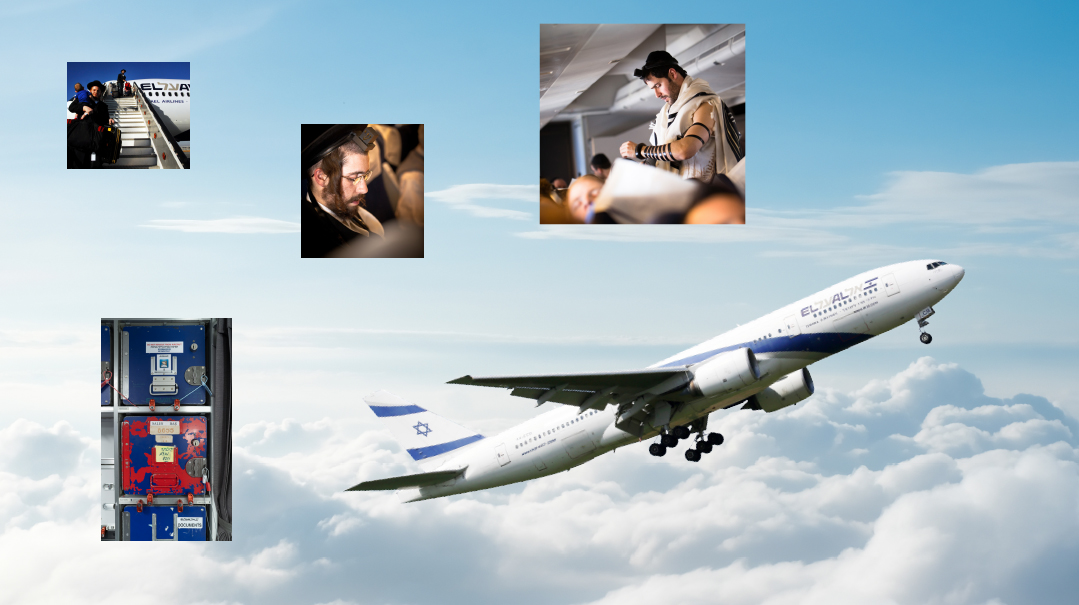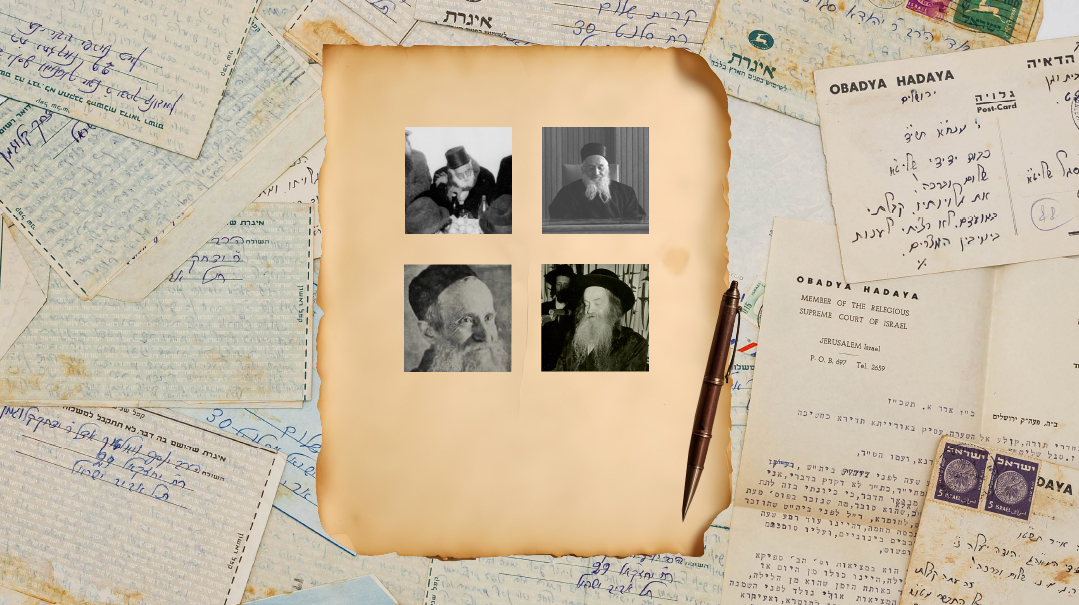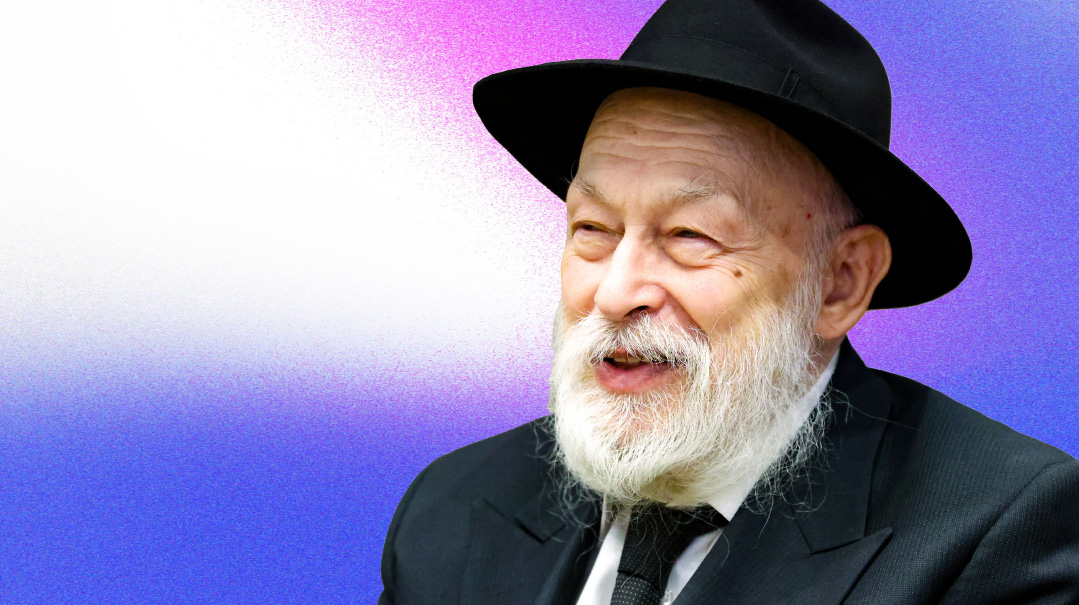Before They Slip through the Cracks

Saving Israeli expats from spiritual oblivion
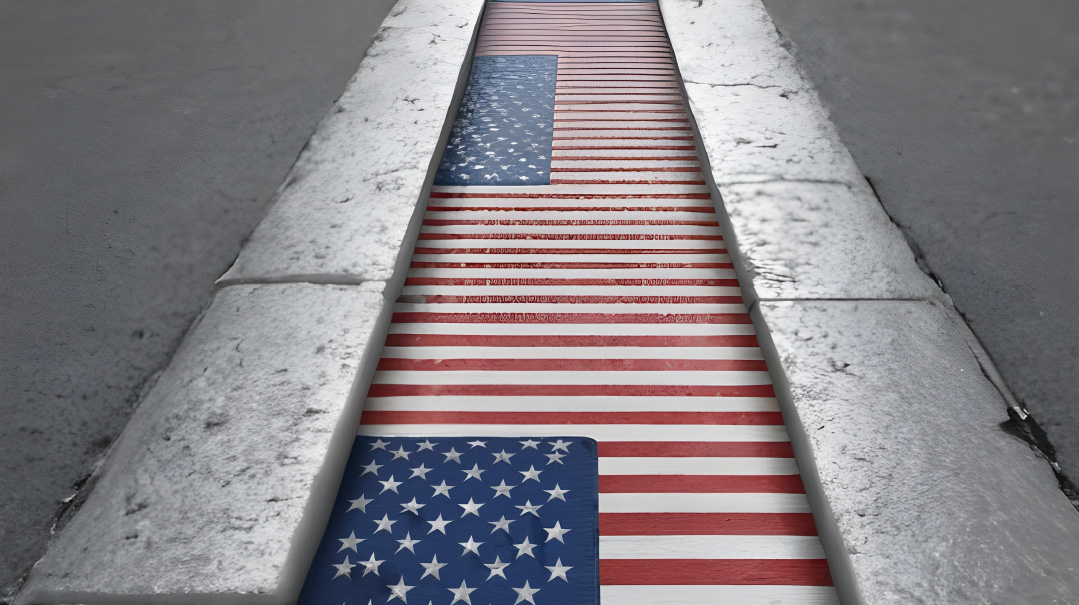
Photos: Yossi Rosenthal
In Israel, a Jewish identity comes along with the turf. But when Israelis move abroad, they often find themselves spiritually unmoored and in real danger of assimilation and intermarriage. That's when the kiruv professionals step in
The scene two weeks ago at the Jewish Academy, a day school in Hollywood, Florida, was both heartwarming and slightly disorienting. The 300-strong K-12 school had a special guest, Mirrer Rosh Yeshivah Rav Yitzchak Ezrachi. Clustered around the 91-year-old visitor were dozens of little children singing “Kol Ha’olam Kulo” and “Thank You Hashem” as the rav beamed and sang along. Some boys sported close-cropped hair and jeans; others favored ponytails topped with large knitted kippot. While the younger children gathered eagerly around, the older students hung back until they were swept up in a dance around the Rosh Yeshivah, tugged into the circle by a black teacher who was obviously swept up in the enthusiasm of the moment.
From the distinguished guest to the children with minimal Jewish background and their chareidi teachers, the event had all the trappings of a visitor’s day at a kiruv school in Holon or Be’er Sheva. And yet here it was, thousands of miles away in sunny South Florida.
For anyone familiar with the school’s catchment area in the Hollywood–Fort Lauderdale neighborhoods north of Miami, the sound of so many kids speaking fluent Hebrew would come as no surprise. Home to tens of thousands of Israelis, the area is an Israeli colony complete with giant hostage posters and declarations of support for the country they’ve left behind.
The masses of yordim who stream to this Little Israel come in search of the cash and peace of mind that elude them back home. Some are professionals, but many are blue-collar workers there to make a quick buck working in a mall or in construction.
But in doing so, the many traditional Jews who make Friday night Kiddush and want their children to marry Jewish expose themselves to horrific rates of assimilation among Israelis in America.
If there’s any hope for the latter-day wave of Israeli immigrants, it lies to the south, down the I-95 at a hotel near Miami Airport at the event that brought Rav Ezrachi to Florida. More than 40 kiruv rabbis were gathered for a conference by an umbrella organization called Mekusharim, founded in 2021, which is involved in revolutionary work: building a movement out of the many grassroots outreach efforts for Israelis who live in America.
Despite the ubiquity of Hebrew speakers selling Dead Sea products at malls across America, their story has largely flown under the communal radar. Hundreds of thousands of Israelis now make their home in the US and Canada. Drawn by economic opportunities that don’t exist back home, they flock to Florida, New York, Los Angeles, and everywhere in between. Many are far more traditional than their American counterparts, bringing their Friday night Kiddush and Jewish pride across the Atlantic with them. But in numbers that rival the hemorrhaging assimilation of the native Jewish community, the newcomers — or their children — often intermarry.
Like a replay of the Ellis Island generation around the turn of the 20th century, Israelis in America fear for their children’s Jewish future, desperately hoping that their “Israeliness” will transmit itself to the next generation and prevent intermarriage — often to no avail.
What makes that fate so tragic is that in many cases it’s preventable, says Rabbi Yehuda Kornfeld, a co-founder of the Jewish Academy in Hollywood, and one of the heads of Mekusharim. “Ninety percent of Israeli Jews don’t want their kids to intermarry, and despite the statistics of over 70 percent intermarriage, they tell themselves that it won’t happen to them. But while they focus on transmitting Israeli identity they should be focusing on Jewish knowledge, giving the children a reason to stay Jewish.”
Over the last 15 years, the carnage among yordim has drawn a stream of Israeli mekarvim to American shores, in the footsteps of their countrymen. Often with little English, funding or institutional backing, these rabbinic couples employ their native entrepreneurialism to set up shop in a foreign land. In the process, they build shuls, communities, and schools that cater to the overwhelming thirst for Jewish connection and education among Israelis abroad.
Those grassroots efforts have been very successful — perhaps more so than the vastly better funded traditional kiruv efforts in America. That’s because mesorati Israelis are at once closer to their Jewish roots than the average American Jew, and also newly receptive once detached from the cocoon of Israeli life.
One marker of that openness is that the only kiruv yeshivah now operating in America — Ohr Yisrael in Monsey — is an Israeli institution, catering to Israelis who’ve become baalei teshuvah in America. Since October 7, the sense of crisis that has enveloped Israel has spilled over to Israelis abroad, driving a surge in interest in Jewish identity at both kiruv centers and Jewish schools.
Over the course of two days in southern Miami, the conference gave a chance for those sustaining that broad outreach effort to network, learn organizational skills, and gain a sense of being part of a growing revolution that has seen the opening of five new communities for Israelis and over 600 public school children placed in Jewish schools in 2023 alone.
Alongside a start-up sense of new frontiers was a very real sense of urgency when it comes to Israeli outreach, to prevent the “silent Holocaust” as Rav Yitzchak Ezrachi termed the fate of the vast majority of Israelis on American shores.
“We have a very limited window when it comes to saving Israelis in America,” says Rabbi Yosef Vakrat, one of Mekusharim’s three co-founders, who heads an Israeli community in Atlanta. “When they arrive, they’re searching for community and questioning their Jewish identity. They can find those two elements in shuls, where Israelis gather. But their children — 90 percent of whom go to public school — are already American, and often it’s too late for them in Jewish terms.”
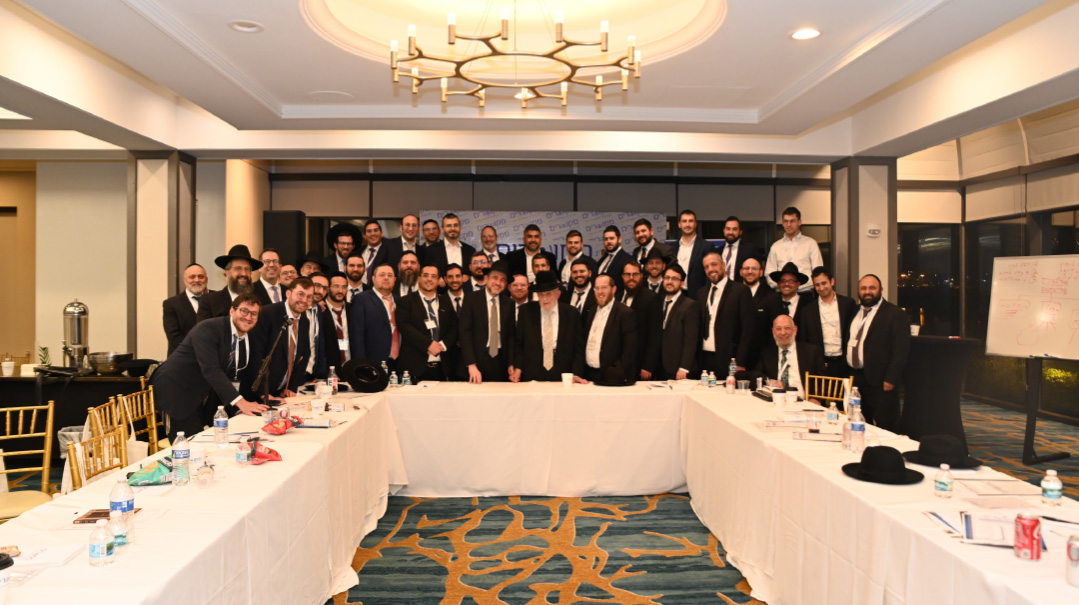
If there’s any hope for the Israeli expats facing assimilation and intermarriage on American shores, it could be found at the Mekusharim conference
Big Bang, Big Bucks
As it is for many Israelis, it was the chance of easy money that brought Oren Rahatlev to America 25 years ago. Born in Kfar Saba, he worked in Eilat’s entertainment industry as part of a hotel theater troupe, until wanderlust and the Israeli dream of dollars in the land of opportunity brought him to the malls of America. Like thousands before and since, he sold cosmetics in the “agalot” — stalls in various malls across the eastern United States.
It was specifically life in America that fostered a change in his Jewish identity. “I was born to Iranian and Yemenite parents, and raised in a secular home where Jewish identity was a non-factor,” he says. “But one day someone convinced me to listen to a cassette by Rav Amnon Yitzchak on a car journey about evolution. ‘This is such a complex world, comprised of billions of organisms — who created it?’ ” he asked.
That question triggered a years-long process that illustrates the spiritual perils and opportunities for Israelis in America. “I was away from my family, making very good money as boss of my own company, and I became the ‘rabbi’ of the company,” says Rahatlev, who today employs his managerial skills as the director of Yeshivat Ohr Yisrael in Monsey. “Under the guise of company training, I would make my new Israeli employees watch Rav Amnon Yitzchak videos. Yet at the same time as I was starting to keep Shabbat, I had a non-Jewish girlfriend. I excused it by saying that she would convert, but it took a decision to go to yeshivah myself to enable me to break away from living on the fence.”
His own journey has given Oren perspective on what is now the well-trodden path from secular Israeli to baal teshuvah in America. “When an Israeli comes here, he automatically seeks out other Israelis. He wants a falafel or shawarma, and finds that in America, those often come at restaurants with a hechsher. Like me, he might not have met religious people or a rabbi before, but suddenly he discovers that they are very friendly. That interaction starts a process.”
In many cases, the search for community in a foreign land is what triggers a change. That can also go alongside a search for identity driven by the sudden realization of the distinction between Jews and non-Jews prompted by life in America. But that is mostly the province of the mesorati (“traditional”) Israeli who has some experience of Judaism.
“Beyond traditional places such as Holon and Bat Yam, the average secular Israeli is raised like a non-Jew,” says Oren. “I have a cousin in Israel who walks around with a cross, and my Yemenite aunt ate chametz on Pesach with no problem. For Israelis like me, there is no sense of Jewish crisis when you arrive in America.”
Like Oren, Rabbi Maoz Yitzchakov’s insights into the Israeli experience in the US are born of firsthand knowledge. Today head of the Eliyahu Hanavi Institutions, an outreach network in heavily Israeli Hollywood, Florida, which has 1,200 active members, Rabbi Maoz, 41, was a professional soccer player on a sports scholarship at a Florida college.
Born in Ramat Gan to a traditional family, he tried to maintain the basics of kashrus observance, which was very difficult on tour with his team in the wilds of Iowa and Connecticut. “We would go to restaurants that served shrimp or pork, and I wouldn’t eat. My coach wanted to know why, and I tried to explain, but I didn’t really know myself why.”
That knowledge gap led Maoz to start learning about the whys of Judaism, which in turn led to increasing mitzvah observance. Shabbos, though, was a step too far: “I had to play on Shabbat, so even though I was washing my hands for hamotzi, I carried on playing.”
The breakthrough in his teshuvah journey actually came via a college science class. “The professor was lecturing on Darwin, and when I learned that it was no more than a theory, it struck me that the modern world is basing its life and value system on something that’s no more than an article of faith. I started to challenge my professors, friends, and even religious Christians about it. By that stage, I couldn’t live with the contradiction of playing on Shabbat, and so I left the team, despite it feeling like my heart was being ripped out.”
Within a few years, Maoz was giving weekly shiurim to the local Hollywood community attended by 50 people. Having graduated with an MBA, Maoz was active in business and the de facto rabbi of a community — a fact that some local rabbis disapproved of, given his lack of formal rabbinic qualifications.
That led to Maoz spending time learning with local rabbanim, and today he is Rabbi Yitzchakov. His shiurim reflect his own journey and contain strong elements of the traditional kiruv seminar’s intellectual challenge involving proof of the Torah’s Divinity. Once people are open to learning, Rabbi Yitzchakov initiates them into Gemara at a kollel for those with little Torah learning background.
“The opportunities for kiruv in America are infinitely greater than in Israel,” he says. “People who would never come to a shiur back home will come in, because they have no family here, and they discover that it’s the shuls that are places of community. That happened to a woman in my community recently. She arrived anti-religious, but now comes to shul four or five times a week. There are families who’ve become bnei Torah and moved back to Israel through their journey with our organization.”
But, warns Rabbi Yitzchakov, every young, unattached Israeli who arrives is in immediate danger of assimilation. “In my experience, a large majority of Israelis will end up dating a non-Jew. They think that it won’t come to marriage and children — they just want to socialize. But it often ends in tragedy.”
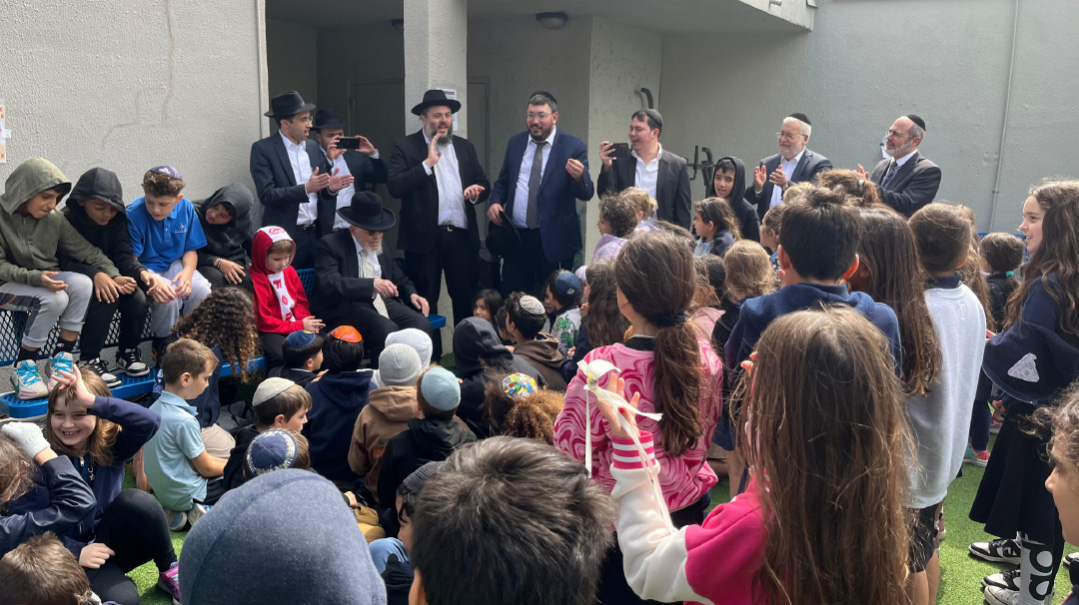
“A silent Holocaust.” On a visit to Florida, Rav Yitzchak Ezrachi (seated) does his part to turn around the fate of the next generation
Education Nation
Just down the road from Rabbi Yitzchakov’s Eliyahu Hanavi shul in Fort Lauderdale, the Grand Café is an Israeli hub that feels worlds away from America. A blue and white flag hangs proudly in the entrance, patrons sip lattes while speaking Hebrew, and it’s hard to imagine any servers getting a job without an Israeli passport.
But this is a café with a difference: It’s 9:30 a.m., and a shiur for men and women has just wound up on one side of the café.
“You should have been here ten minutes ago,” says one attendee, Rivka Goren, originally from Ness Ziyona. “There were 35 people here — we get together every morning for a shiur.”
Joined by Meytal, a mother of three whose family immigrated from Musrara, Jerusalem, to Queens, New York, when she was 18 years old, the women open up about the experience of Israelis in America.
“I’m here because life in Israel is very pressurized, both financially and in terms of the security situation” says Rivka, who practices Chinese medicine and whose husband Chaim Goren is a doctor. “Like many Israelis, I came after the Second Intifada, because here we feel safe. Even after October 7, when Jews in New York felt very threatened, life here in Florida is largely free of anti-Semitism. And, unlike in Israel, where even two middle class salaries aren’t enough, here we can live comfortably.”
Similar push-pull factors led to Meytal Edri’s family to up sticks and leave for New York. “In my case, the change was easier because we all came together — parents, siblings, cousins. We headed for a very Israeli community in Queens, and I moved here with my husband.”
Beyond parallel experiences in moving to Israel, the two share similar Jewish journeys stateside. They both have children in the Jewish Academy and admit that they live a far more actively religious life in America than they would have done in Israel. “We have many friends who have intermarried,” they say, “and the big difference is education.”
Although at first they talk of Israeliness as a core anchor of their identity — one they hope to pass to their children — it quickly becomes clear that they are talking about Jewishness. “Many traditional people come here, and at home they light Shabbat candles and make Kiddush, but that doesn’t get passed on, because their children go to public schools. Being in a Jewish school and going to a beit knesset means giving the children a real sense of Jewish identity.”
For Rivka in particular, who organizes the cafe shiur, Torah study has played a dramatic role in her family’s evolving commitment to Jewish practice. Despite her own personal journey, until recently her husband, Dr. Chaim Goren, was uninterested in pursuing his own growth.
That changed when he attended a Gemara class at Rabbi Maoz Yitzchakov’s kollel. He was hooked — and that created problems for the rabbi.
“That first week, he heard from Rabbi Maoz that the kollel didn’t operate on Shabbat, and he couldn’t understand why.”
“If it’s important, it should be every day!” he said.
“Fine, so if you really want it to happen, then come over on Shabbat,” said Rabbi Yitzchakov, not taking the other man seriously.
“My husband went over to his house at 7 a.m. on Shabbat and knocked on the door,” laughs Rivka. “Since then, there’s a shiur on Shabbat as well.”
The fact that both Rivka and Meytal’s families are on growth trajectories is due to the ecosystem of shul, community, and school that they find themselves in. The latter is critical because of the terrible intermarriage rates of public school graduates.
Sending their children to Jewish day schools is not something that comes naturally to Israelis. For one, most attended state schools in Israel and see no reason why it should be any different in the US. Even those who are open to the idea are daunted by the cost factor.
“Tuition costs about $14,000 a year per child, of which about half is covered by vouchers from the state, and another few thousand is covered by grants from various Orthodox organizations,” says the Jewish Academy’s Rabbi Yehuda Kornfeld, “but it’s still a stretch for some parents to commit to the balance, especially if they have a few children.”
To bridge the gap — as well as fulfill the school’s outreach mandate — the Jewish Academy has an innovative program of shiurim for parents, attendance at which reduces the cost of tuition. That’s seen as a welcome endeavor for parents who would otherwise be unequipped to keep pace with their children’s Jewish education.
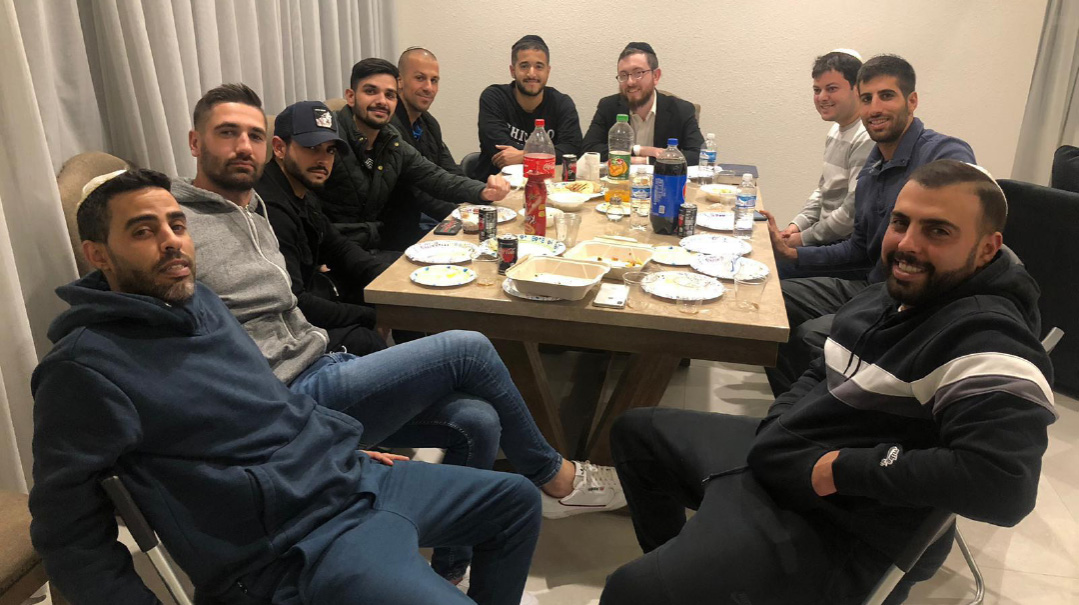
“When you have no family, the shul becomes your safety net.” Israeli expats joining together for a dose of Torah learning and community
Beyond the Box
This type of entrepreneurial approach to outreach is common across the vast sweep of the new Israeli kiruv frontier in America. A case in point is the Las Vegas community headed by the third Mekusharim founder, Rabbi Moshe Orlowek. A born-and-bred Yerushalmi and son of noted educator Rabbi Noach Orlowek, the junior Rabbi Orlowek moved to the Nevada entertainment metropolis in 2017 and now heads the Jewish Identity Center, an Israeli outreach organization and community under the auspices of the Young Israel-Aish branch.
Like many of those who’ve moved across the world to reach out to their fellow Israelis, Moshe Orlowek has a story: His path took him from Yeshivas Chevron via Lakewood to Las Vegas. He credits his own interest in outreach to the example of his father’s mother, who made great personal sacrifices for her sons’ Torah education in pre-war America.
As an American-Israeli, Rabbi Orlowek says that a major barrier for local kiruv organizations when dealing with Israelis is culture. “Israelis need someone who understands them — they’re looking for a connection to home, and they’ll gravitate to another Israeli.”
Over the last seven years, he’s turned that theory into practice, building a kiruv model based on Israeli manpower. “We bring in multiple bochurim from the older shiurim in leading Israeli yeshivos such as Mir Brachfeld to learn with baalei teshuvah,” he says. “They come for a few months, and it’s proven to be very special for both sides. The baalei teshuvah get high-level Torah learning, and the bochurim in turn get the chizuk of interacting with people who are growing and have made life-changing decisions in their spiritual growth. Some of those bochurim have been inspired to pursue a career in rabbanus as a result.”
That willingness to embrace a new kiruv model — importing manpower to effectively reach their target audience — is the type of thinking that marks the new surge of kiruv targeted at Israelis in North America.
So, too, is the combined sense of urgency and possibility evident across the Miami conference. There’s an excitement of being part of something big, and of working — with too few resources — against the clock.
All organizations are chronically cash-strapped, but in the case of Israeli kiruv in America, the call for more money and manpower — and greater support from America’s Orthodox community — rings true. Tens of thousands of those like Oren, Rivka, and Meytal who are open to real Jewish growth disappear every day into the proverbial American melting pot.
Rabbi Yehuda Kornfeld spoke to that sense of mission — motivated by the very real exposure to the tragedy of Israelis in America — recalling the words of Rav Moshe Shapira ztz”l back in 2010 before the Kornfeld family departed for American shores.
“I spent an hour talking to him about the situation of Israelis in America, and then got up to leave. He blocked my way, and with tear-filled eyes, told me: ‘Listen well — train after train are leaving at this very moment for Auschwitz, trains packed with Israeli children in America, who are being sent to Auschwitz! You have to stop them!”
“Go and tell all those involved in Israeli kiruv in America,” Rav Shapira ended, amid tears, “that I said that they’ll sit in an unimaginable place in Gan Eden.”
(Originally featured in Mishpacha, Issue 1000)
Oops! We could not locate your form.

